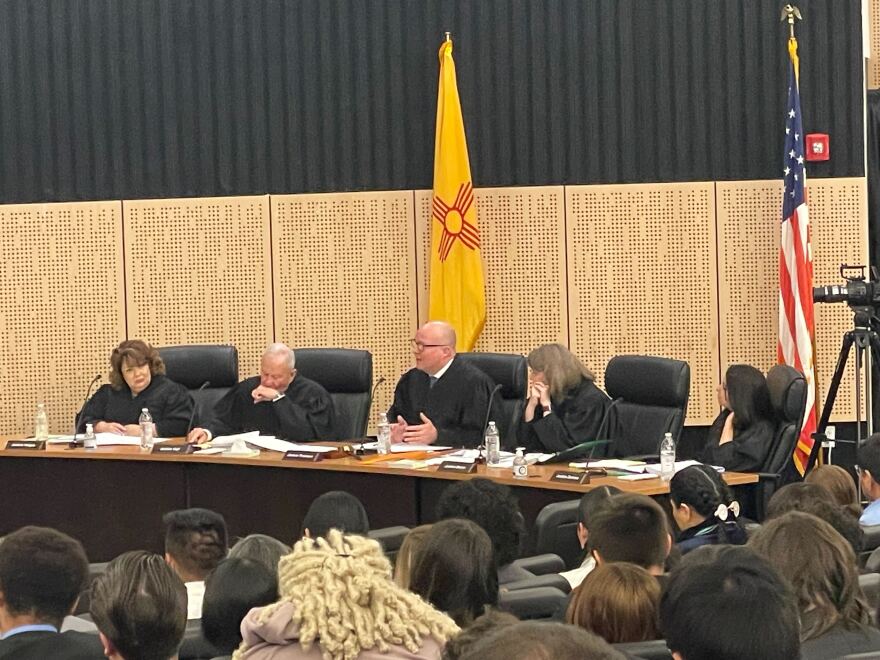On Monday, the New Mexico Supreme Court heard arguments from a 2018 lawsuit against Albuquerque Public Schools (APS) over the behavior of a high school teacher towards Native American students.
The court convened not in Santa Fe, but at Central New Mexico Community College, where over 260 high schools students from across the state could participate in learning more about how state government works. It was the first time the Rule of Law program has come to Albuquerque.
The former teacher at the center of the case, Mary Eastin, allegedly called Navajo student McKenzie Johnson a “bloody Indian” during a class that took place on Halloween. KRQE reports Johnson was dressed in a Red Riding Hood costume with fake blood on her cheek. Eastin also allegedly cut off part of another Native American student's braided hair.
Johnson sued the school district in 2020, alleging violations of the New Mexico Human Rights Act, which prohibits discrimination by any person in places of “public accommodation.”
The act defines public accommodations as “any establishment that provides or offers its services, facilities, accommodations or goods to the public, but does not include a bona fide private club or other place of establishment that is by its nature and use distinctively private.”
A district court dismissed the lawsuit, concluding the school district was not a public accommodation. But the state Court of Appeals overturned that ruling last year.
“This case is not about condoning bad behavior. That is not why we're before the court. This case is about a choice of law,” said Attorney Roxie De Santiago who represents APS and teacher Mary Eastin.
The Legislature changed the anti-discrimination law last year to apply it to governmental entities, but the case before the Supreme Court involves the statutory provisions in effect at the time Johnson sued.
Johnson’s attorney, Leon Howard, argued public schools should be included within the Human Rights Act in order to protect the safety of children.
“It’s one thing to follow the academic plan under academic freedom to teach the troubling history of this country and have a discussion about it,” he said. “And then when you turn that discussion to target a student with a racial epithet, with a racist action, with a discriminatory action, it’s really the targeting why we’re here today.”
Zander Cheromiah is from the Pueblos of Laguna, Acoma and Jemez and a student at the Native American Community Academy (NACA). He said the hearing was educational and sparked his interest.
“It makes me feel like then I could fight for my people or if anyone were to need my help, they can come and call me and I can fight for them,” he said.
The Supreme Court will issue its ruling at a later date.
APS put Eastin on paid suspension at the time of the incident. She has since left for another teaching position outside New Mexico.
The full court hearing is online.
Support for this coverage comes from the Thornburg Foundation.





